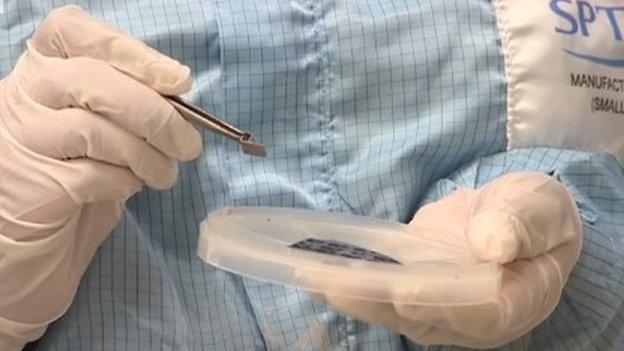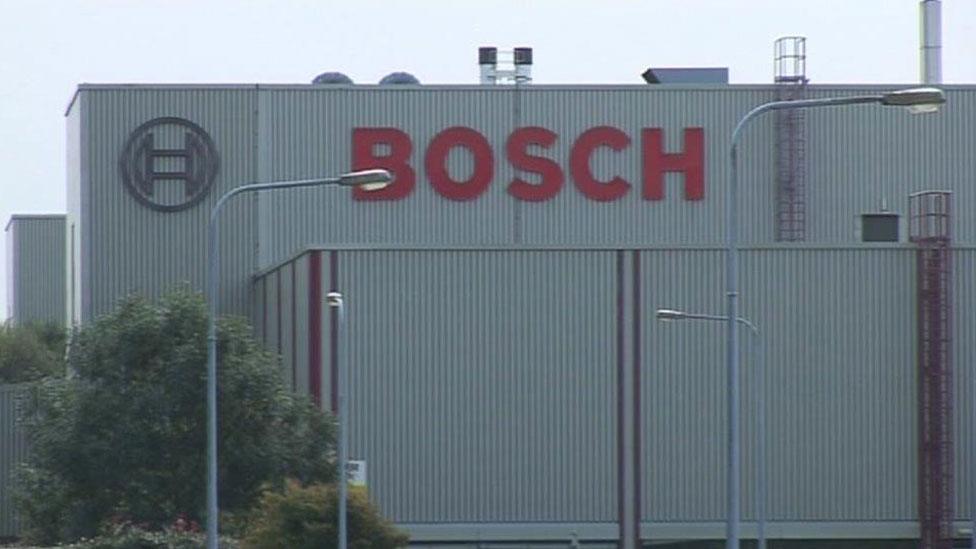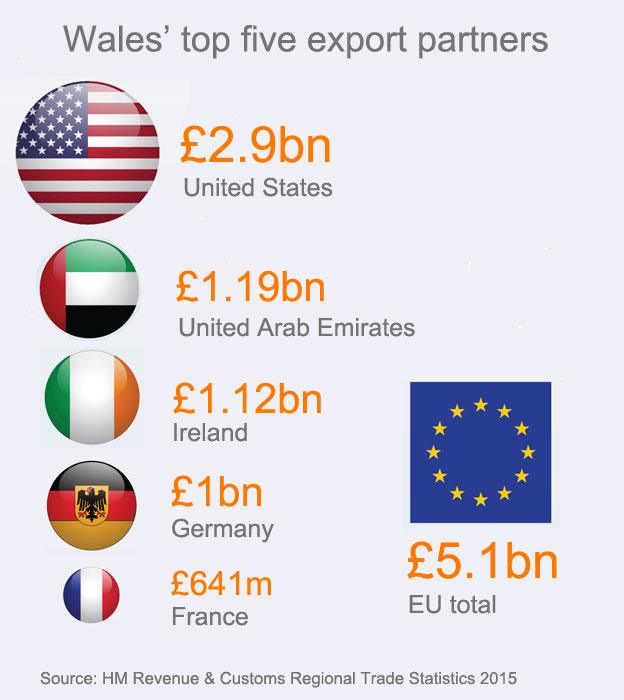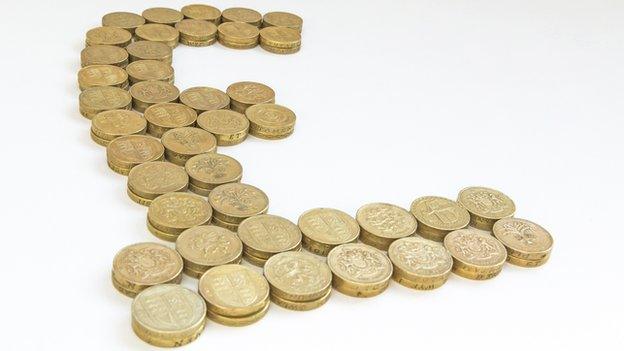Overseas investment in Wales 'bucks trend'
- Published

SPTS Technologies in Newport is one of the inward investment successes for Wales
Wales appears to be bucking the trend in terms of attracting investment from overseas, according to analysis for BBC Wales by Cardiff Business School.
Latest Office for National Statistics (ONS) figures show a 38% fall in money invested in the UK by foreign-owned firms between 2012 and 2014.
But the Cardiff economists said jobs and projects coming to Wales through inward investment are growing steadily.
They suggest Wales is outperforming the UK as it did in the 1980s and 90s.
Meanwhile, the value of exports from Wales has dropped by 8.6% over the last year - with the biggest drop involving trade with the European Union.
Cardiff Business School's Welsh Economy Research Unit has been tracking inward investment for many years.
UK government figures earlier this year revealed a record high of 101 investment projects in Wales in 2014/15, external, creating and safeguarding around 9,600 jobs.
Set against the latest UK ONS figures, the Cardiff economists say Wales "might be performing quite strongly in attracting inward investment at a time when the UK is seeing some pressure on inward investment flows".

INWARD INVESTMENT - WHY WALES?

Bosch had a plant in Miskin, set up with £21m grant money, for 20 years before it closed in 2011
Wooing inward investment to Wales has been a policy of governments since World War II in London and Cardiff.
The Treforest Industrial Estate was one of the first visible examples. Since then many big international names like Ford and Sony have come to Wales and stayed for many decades.
As global economic patterns changed, others like Bosch, Hoover and Hitachi left Wales to produce elsewhere.
It was the move towards a Single European Market in the 1980s and 1990s that made the UK and Wales particularly attractive.
Shoppers in Europe were buying more and more consumer goods from Japan and companies like Panasonic, Sony and many others decided that it made sense to move production closer to customers and the European market.
Massive shake-up
For them, the easiest place to do that from was the English-speaking UK.
Wales was going through a massive shake-up with many thousands of workers losing jobs in the traditional industries like coal and steel and so Wales could supply a large number of semi-skilled workers, flat land for industrial parks and significantly generous grants.
In return, many thousands of Welsh workers found employment and in some cases the foreign-owned firms brought new technology and different ways of working, which were later embraced by Welsh firms.
Between 1980 and 1995 Wales performed well at attracting inward investment. By 1992, it was winning 11.8% more than twice its share of the projects invested in the UK.
But by the mid-1990s that had halved (5.6%) and by 2005 that, in effect, halved again (2%).
In recent years, Wales has been winning greater proportions of inward investment again. Despite having only 5% of the UK's population, Wales in 2013/14 won 7.9% of the inward investment projects.


In terms of exports, those to the EU from Wales fell by 17% during the last year, according to new regional trade figures., external
Countries where export values rose the most were the United Arab Emirates (up £80m, 7.2%) and Mexico (up £48m, 168%).
But the United States is still Wales' biggest trading partner - accounting for nearly a quarter of all exports, worth £2.9bn.
Wales' export trade with Ireland fell by more than a third in value or £591m.
The closure of the Murco oil refinery last November is reflected in the £1.1bn drop in exports of fuel products.
With the continuing problems inside the Eurozone, it is no surprise that businesses exporting there are feeling the impact, writes BBC Wales business correspondent Brian Meechan.
The US has always been a big market for Wales, more so than some other nations and regions in the UK.
Many businesses try to export to numerous different nations, the hope being that, if sales aren't going well somewhere because a country's struggling with growth, it will be mitigated by trade elsewhere.
As for imports, these fell 4% over the year although the biggest jump was in goods from China (up £86m). Germany remains the largest import partner for Wales and the EU now accounts for half of imports.
- Published3 December 2015

- Published15 June 2015

- Published20 July 2014
